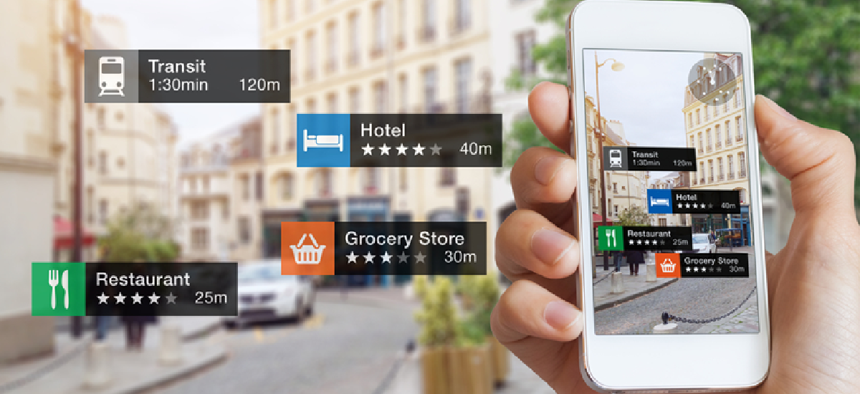Smart tourism sets the bar for cities' tech future

Orlando is planning a smart city infrastructure that will leverage technology and data to improve visitors' experience and enhance the quality of life for residents.
Tourism is a major revenue source for many cities, whether they attract visitors because of theme parks, historic or natural sites, or sporting events. Recently, something else has been drawing tourists to some places: technology.
Home to Walt Disney World, Universal Studios and SeaWorld, Orlando, Fla., has little trouble bringing in visitors -- a record 75 million of them in 2018, to be exact -- but Mayor Buddy Dyer wants to make sure their experience in the city, not just the parks, is top-notch.
“To accommodate visitors of that [number], you have to continuously figure out how to use technology,” Dyer said. In fact, in-vehicle GPS navigation got its start in Orlando, helping tourists safely get from the airport to their hotels, and the city was the first to try electronic tolling on highways. Now, Orlando International Airport is pilot testing facial-recognition technology to ease checkpoint crowds for international flights.
The theme parks themselves use technology to make traveling easier for guests, which sets a precedent for the type of services visitors to Orlando expect. For instance, Disney uses FastPass+ wristbands that Walt Disney World Resorts guests can use to unlock the doors to their rooms, pay for meals and expedite wait times for rides.
“We’re in the process of developing a smart cities master plan and road map,” said Chris Castro, Orlando’s director of sustainability, adding that the city issued a request for proposals last month seeking a consultant to help with that plan. “We realize that leveraging the latest and greatest technologies has the ability of really helping us to solve some of the unique urban problems that are facing cities today, and at the end of the day, to enhance the visitor experience, to enhance the quality of life of those who live and work here, and move towards a destination that’s greener and cleaner and healthier.”
Some of the data that Orlando officials are looking at involves transportation -- where people are going and coming from, in what quantities and via what modes of transportation. This could help encourage use of alternative forms of transportation, for instance, said Mike Hess, Orlando’s smart city project director.
Safety is another benefit of better data analytics to tourists and residents alike. “Because we are a destination, we end up with a lot events that have big crowds,” Hess said. “So how can we leverage our police data, our camera system data to make sure that those crowds are kept safe? The minute we have an incident, it could really hurt the tourism economy.”
To accommodate all these efforts -- not to mention keeping everyone connected to the internet to post videos, images and text to social media during their vacations -- Orlando must ensure it has enough bandwidth to handle the traffic. Already outfitted with public and private fiber, Wi-Fi systems and private carriers that will bring 5G, officials are inventorying what they have and what they need, Hess said.
“We’re sort of at the very beginning of smart cities,” he said. “Everybody talks about [internet-of-things] devices and big data, and that’s just going to continue to grow exponentially, so we really want to get out in front of that with really thinking about our 5G infrastructure holistically as a city, thinking about additional public Wi-Fi.”
Technology plays a part in consumers’ travel decisions throughout the life cycle of any trip, said Youcheng Wang, dean of the Rosen College of Hospitality Management at University of Central Florida. The smart tourism effort is designed to reduce the complexity of decision-making, whether it’s what flight to book or where to eat, he said.
“You have to have some kind of overall environment as pillars to support the smart aspects of the destination,” Wang said. One pillar is technology the way the city supports operations, communications and information sharing.
“Whether it’s a big city destination or small rural destination, you can make your destination smart,” he said. “When you make your destination smart, the benefactors are not only the visitors. The local people will also benefit from that.”
Grays Harbor County, Wash., partnered with cloud service provider Meylah to pilot test a solution that would give tourists looking to enjoy the rural county’s water, beaches and rainforests wireless connectivity and smart city services such as itinerary building, smart parking and digital connections to merchants, according to a case study Microsoft published last month.
Through 10 partnerships with firms such as Microsoft, Hewlett Packard Enterprise and Bosch, Greater Grays Harbor Inc. (GGHI), a nonprofit that promotes the area, implemented an infrastructure that included smart wireless networks, smart cameras and kiosks.
Although GGHI saw the number of visitors increase, the cost of the project proved prohibitive to a full implementation, Dru Garson, the organization’s CEO, wrote in an email.
Other cities are having more success. CIMCON, a smart city solutions provider, announced last month that it was working with Syracuse, N.Y., and the New York Power Authority on intelligent lighting controls to be installed on 17,500 new streetlights. Expected to save the city more than $3 million annually, that effort is the first part of the Syracuse Surge, an economic growth and neighborhood revitalization plan.
Philadelphia also tapped CIMCON to deploy smart lighting but also sensors, digital cameras, video analytics software and networking technology to monitor air quality and count people and vehicles.
In Orlando, smart tourism is just one part of the overall smart city plan, but the two go hand-in-hand, promising to increase economic development.
“We think about it as how can we better use technology and data to help make our city better, but also help improve that customer experience and regional collaboration to keep that tourism industry going,” Hess said.





